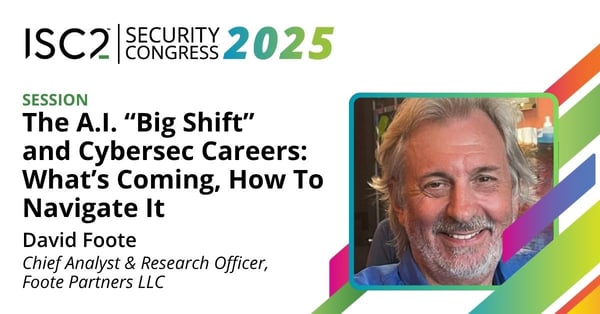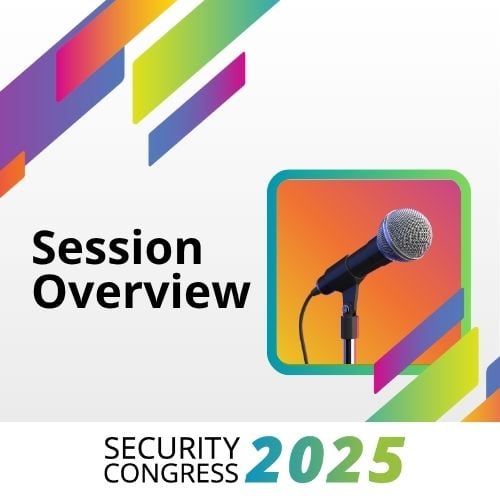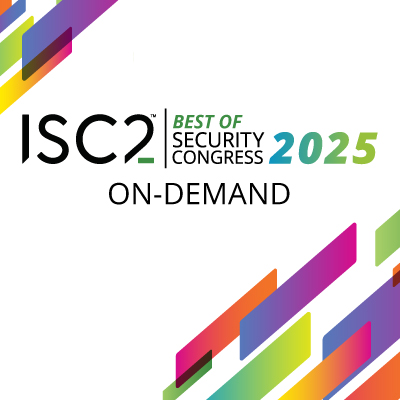Attendees at ISC2 Security Congress in Nashville and online explored how AI is reshaping cybersecurity careers, from emerging roles to essential soft skills, and discovered research-based advice from analyst David Foote on how cybersecurity professionals can thrive in this era of rapid technological change.
 "We're going through a cultural change right now, akin to the creation of the steam engine, the internal combustion engine, electricity, the internet. And it's probably even more powerful than all of those. These change the world. They change our jobs. They change society.”
"We're going through a cultural change right now, akin to the creation of the steam engine, the internal combustion engine, electricity, the internet. And it's probably even more powerful than all of those. These change the world. They change our jobs. They change society.”
This was the opening message during the “The AI 'Big Shift' & Cybersec Careers: What’s Coming, How To Navigate It” presentation by David Foote, Chief Analyst & Research Officer at Foote Partners, at ISC2 Security Congress in Nashville. Foote set a powerful tone for his walkthrough of the immediate changes brought on by artificial intelligence (AI), future shifts coming from quantum computing and the implications of these technological upheavals on the cybersecurity workforce.
Indeed, cybersecurity professionals are standing at the edge of a new era. As Foote emphasized, "The best time to certainly get the most out of your education and out of mentorship and out of being coached is during times of change." What does this transformation mean for the workforce? According to Foote, cybersecurity is no longer just about protecting networks and endpoints. It’s about defending the future. As AI becomes embedded in every business system—from HR and finance to logistics and fraud detection—security professionals will be tasked with protecting systems that think, act and evolve. He pointed out that, “The future of cybersecurity will be autonomous, identity-first, quantum-safe, human-aware and neuromorphic.”
Reshaping the Landscape
As AI becomes pervasive, followed by the growth of quantum computing, cybersecurity professionals can expect an expanding field of cyber defense. He explained, “By 2030, you're going to be defending smart factories, robots, gesture control systems, hospitals, energy grids, rails, ports, logistics, hubs, cars, buildings and guess what? Implantable medical technology.” He added that the convergence of biology, medicine and technology “is happening right now.”
This shift means that security professionals must evolve, too. The profession is no longer about reacting to threats; instead, it’s about anticipating them. "Cybersecurity is becoming predictive, not reactive. Zero trust is becoming table stakes,” said Foote. Accordingly, cybersecurity is about designing systems that assume compromise and build resilience. It’s about securing autonomous actors that operate outside traditional boundaries.
The State of Knowledge Work in Cybersecurity
Foote outlined a pivotal change in the cybersecurity landscape: "Machines are picking up most of the knowledge work—the knowledge that has made you valuable in your career going forward is no longer of value to companies." He described this as a “transition from a knowledge economy to an innovation economy.” While this may sound daunting, Foote sees this as a moment of excitement and opportunity. As AI systems are now trained to do much of the knowledge work faster, cheaper and at scale, the value of cybersecurity professionals is evolving. In Foote’s view, “Success will depend not only on defending systems but on building secure ecosystems, ethical AI and resilient cultures.”
So, what are some of these jobs that will emerge to meet the demands of the evolving cybersecurity profession?
Cybersecurity Jobs That Don't Exist Right Now
The Foote Partners view is that “the tech environment characterized by AI, early quantum computing and synthetic data ecosystems [is] giving rise to entirely new branches of cybersecurity work.”
Here is a snapshot of “14 Evolving/Emerging Cybersecurity Roles (2025–2030)”:
- AI Behavior Audit Investigator
- AI Threat Intelligence Analyst
- Autonomous Defense Orchestration Manager
- Autonomous Incident Responder
- Autonomous Governance Auditor
- Behavioral Security Strategist
- Bio-Digital Identity Security Specialist
- Cyber Resilience AI Design Strategist
- Deep-Fake Resilience Officer
- Digital Identity Experience Designer
- Ethical AI Risk Officer
- Quantum-Ready Cryptography Advisor
- Synthetic Identity Fraud Protection Analyst/Architect
- Zero Trust AI Security Architect
Foote Partners also has a longer-term view of cybersecurity roles, citing 20 new cybersecurity roles (2030+) driven by a tech environment in which cybersecurity evolves far beyond today’s AI and cloud drivers into “nanotechnology, artificial consciousness, ambient computing and planetary-scale networks that redefine what it means to protect data and identity.” Some of these include an AI Ethics Compliance Technologist, a Robotic Systems Security Engineer and a Quantum Network Guardian—roles that show just how far the cybersecurity profession is set to evolve in the coming decade.
While the future of cybersecurity is compelling, Foote noted that “failing to build a well-trained, motivated workforce is easily the biggest threat to success.” What skills will be paramount for achieving success?
“Soft Skills” That Will Define Cybersecurity Success
As machines take on more technical tasks, the human element of the cybersecurity professional will become even more critical. Defining traits will include the ability to communicate, collaborate across domains, adapt to change and inspire innovation. As Foote said, "We can hire. We can train for a lot of the tech skills, but we need soft skills. We need more people who can talk to the business."
Foote cited the World Economic Forum (WEF) The Future of Jobs Report 2025 overview of the core soft skills across professions, based on the perspective of more 1,000 leading global employers across 22 industry clusters and 55 economies from around the world.”
According to the WEF, the following are the top five core soft skills:
- Analytical thinking (69%)
- Resilience, flexibility and agility (67%)
- Leadership and social influence (61%)
- Creative thinking (57%)
- Motivation and self-awareness (52%)
This focus aligns with ISC2 recent research on hiring trends across the cybersecurity workforce; this research found that the top-ranked personality attributes this year for early-career cybersecurity professionals were problem solving, analytical thinking and critical thinking.
Five Critical Decisions to Make Now
As cybersecurity professionals face the “AI big shift,” there are “five critical decisions you will make throughout your security career that will make or break you,” noted Foote. These include:
- The industry you choose to work in
- The form of employment you choose
- Which emerging technologies you choose to focus on
- Soft skills you have mastered
- How well you match up with the culture of your employer
An Exciting Future for the Cybersecurity Profession
The cybersecurity field is experiencing a seismic shift driven by AI, quantum computing and innovative leaps in medical technology. The future will demand both technical acumen and soft skills that enable collaboration, adaptability and visionary thinking. Foote’s message is clear: This transformation is not just a technological one but a human one. Those who embrace change, cultivate soft skills and align their capabilities with emerging roles (2025-2030) and future 2030+) roles not only will survive but thrive.
In this new era, cybersecurity is more than a career. It is calling to ensure a more safe and secure cyber world.
For a deeper dive of early-career hiring trends in cybersecurity, see ISC2’s latest research.



.jpg?h=420&iar=0&w=420)